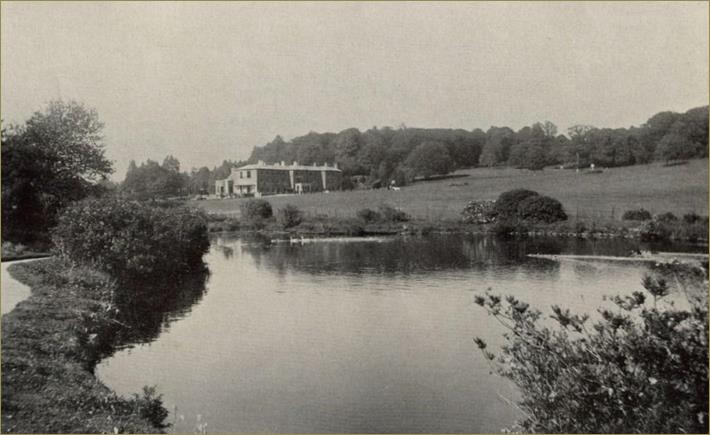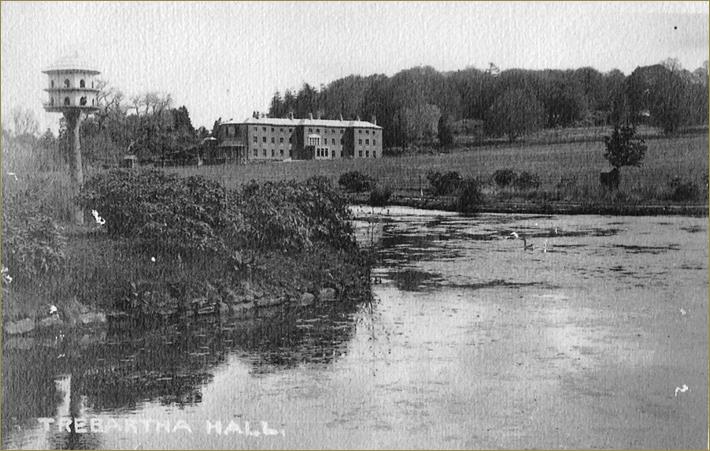


THE HISTORY OF TREBARTHA HALL - Extracts from a talk by Robert Latham in October 2011 |
||||||||||||||||||||||||||||||||||
| <<< To return to the "Trebartha & Trebartha Hall" page. | ||||||||||||||||||||||||||||||||||
| ||||||||||||||||||||||||||||||||||
| Click on a page number above. You are reading page 06 now. |
Trebartha Hall from across the Swan Pool |

|
|
Another 1940 photo of Trebartha Hall taken from the particulars of sale. The view is of the house, over the Swan Pool. At this time Francis Rodd had no male heir. The 1930s was an extremely difficult time for agriculture. His memories of the Great War made him uncertain of the future. For these three reasons he agreed to sell Trebartha Estate. The rent roll for Trebartha was at the same level in 1940 as it had been in 1870, such was the depression in agriculture. Charlie Gilbard, tenant farmer at Trebartha Barton at the time, described the difficulties of farming during the depression “Breeding ewes could be bought for a few pounds, however, these would fetch even less in the spring with their lambs”. Few Trebartha properties had electricity, internal toilets, bathrooms or adequate supplies of water. Lighting was by oil lamps and cooking was by Calor gas. Francis Rodd enlisted in the First World War and Harry Landrey had been his batman. Harry’s brother William Landrey was killed in 1918 at the second battle of Scarp. Evelyn Mann, one of Francis Rodd’s sisters, told Robert Latham that upon hearing war had been declared in 1939, Francis shot all his hunters (horses) rather than see them taken off to war. |
 |
The image at the top of the page shows views of and around Trebartha Hall used by Robert Latham in his talk. |